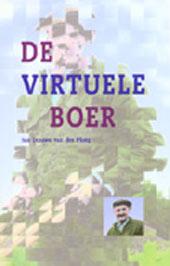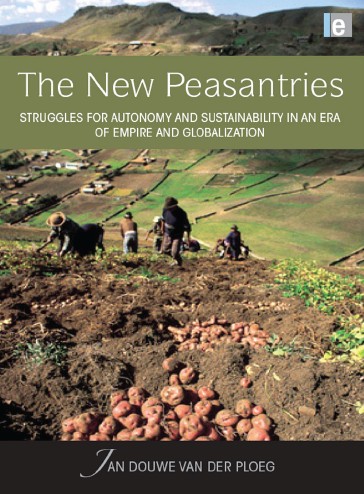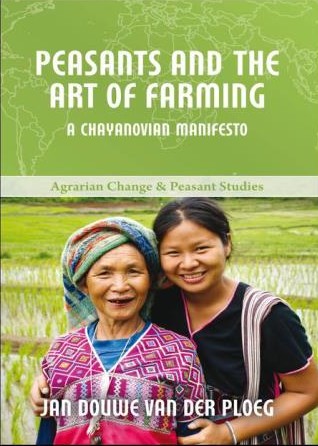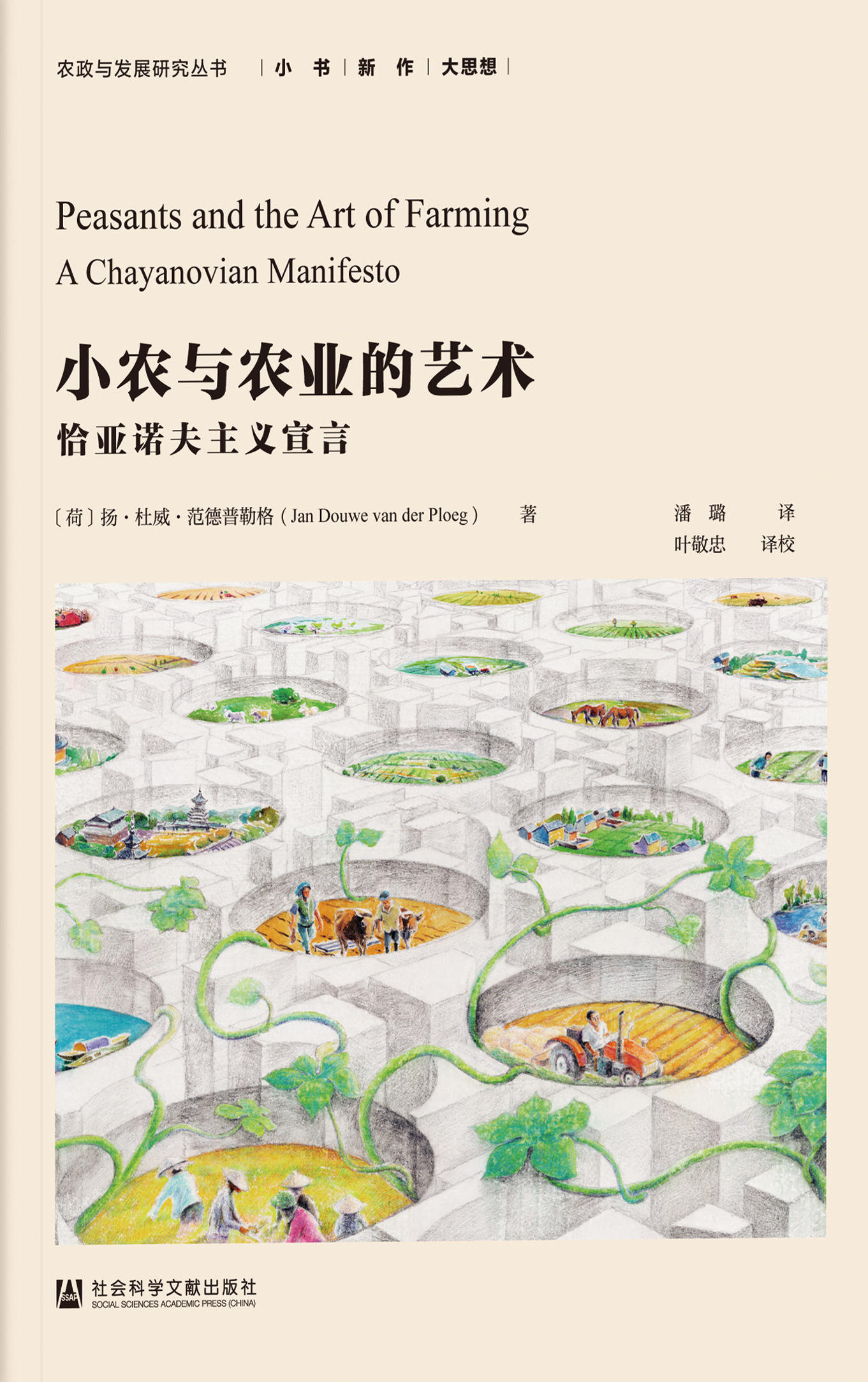Sociologia Ruralis, Vol 44, Number 4, October 2004
Book Reviewvan der Ploeg, J. D. (2003) The Virtual Farmer
past, present and future of the Dutch Peasantry (Assen: Royal Van Gorcum) 432 pages
Given the ostensible 'decline' in the numbers of people engaged in agriculture in European rural societies, and the undoubted rise in 'the consumption countryside', it is perhaps not surprising that agricultural sociology may have become somewhat marginal to the broader drift of rural sociological analysis. This book re-dresses this balance in providing a deep and comprehensive analysis of Dutch farming which is both rooted in historical analysis and contemporary spatial diversity. The main aim and thesis of the book is to expose the significant differences between the actual and material practices of Dutch farmers (what has been commonly termed the longstanding 'farming styles' school of empirical research undertaken at Wageningen); and the particular but still dominant scientific and technical construction of the 'Virtual Farmer'. Such a construction is tied to the development of the contemporary agricultural modernisation project prevalent in the advanced world; and particularly applied in the Netherlands by the prevailing governance, scientific and interest group structures. One of its defining features is to deny the historical basis and experiential practices of agriculture, and to place most emphasis upon 'a future world'. A world which rationalises and intensifies production around scale criteria and incorporates farmers into an ever intensive 'race to the bottom'; chasing ever more costly production for relatively lower farm prices.
A range of theoretical sociological concepts are applied and explored in this analysis; with a noticeable sociological lineage which relates to the earlier stimulating work of Hoftsee, Galjart and Benvenuti. In particular, the critical applications of Giddens' notions of structure and agency are impressive, bringing together a range of detailed statistical and empirical data, gathered over many years. In this sense this is both a theoretically as well as empirically enlightening study, which is built around the understanding of the Dutch peasantry as they seek to either accommodate, resist or work around the dominant agricultural paradigm.
After a theoretical introduction which critically explores the relations between past, present and futures in modern agricultural systems, and positions the concept of the agricultural modernisation mega-project, the book is organised around three substantive sections associated with: Distanciation: creating resources; Unfolding: the utilisation and development of resources; and Disciplining: the future dominating the present.
In Distanciation, the author provides an historical tour de force of the Dutch peasantry, showing, using a range of historical and empirical data, how the family farm in agriculture continually constitutes one significant juncture at which commoditiy circuits and noncommodity circuits are structurally tied together. This is histrocially variable and is at the heart of the reason why Dutch farmers can still be regarded as peasants. The author argues that the basic tenet of the peasantry: the balancing of the highest possible technical efficiency on the one hand, and the search for the lowest possible supply-side market dependency on the other, is still relevant today. A good farmer is able to continually resist the complete and dependent logic of the market, and can organise market relations in ways which fit into broader frameworks, normative notions and a range of non-commodity relations; however capitalistic these overall commodity relations become. Moreover this is a dialectical process which has at its heart the context of spatial heterogeneity and diversity; a concept that professionals pursuing the modernisation project tend to ignore.
As a result, a range of definitive farming styles emerge, with their own sets of 'relevance horizons'. Rather than move seamlessly along a pre-designed production function with regard to fertiliser and feed concentrate use, for instance, these farming styles demonstrate that farmers construct and co-construct their own functions, in a constant re-balancing and innovation process which encompasses the social and the natural, and not just the strictly economically rational. van der Ploeg gives some delightful empirical examples of how this occurs; and as a bi-product of this analysis it demonstrates how the rich empirical rural sociological tradition can clearly give authority to the dynamic production of social and spatial differentiation.
As the book proceeds from one micro-detailed analysis and statistical chart to another, the evidence is marshalled in ways which begins to assemble a signifcant macro-challenge to the modernisation mega- project; that it is possible to demonstate and display 'the future' in a variety of ways; and that a diversity scenario is as viable as those associated with economies of scale. As Chapter 8 indicates, this is particularly apt in the Dutch dairy sector, which is still subject to continued plans for scale- enlargement and further intensification, but with more possiblities for innovative farmers to diversify 'off the treadmill' and into broader rural development fields.
As the analysis proceeds, I was left feeling that what I was experiencing was the documentation of the growing bi-polarity of the countryside. On the one hand, the continuation of the megaproject which 'locks-in' a reduced number of large-scale producers based around a sophisticated socio-technical network linked to retailers, agribusiness and established agricultural science. On the other, perhaps a new 'virtualism' of rural development, whereby diversity and history are brought back in as innovative tools for the real multi-functional development of farms, and the renewal of cultural landscapes. This is very much depicted in chapter 9 which is entitled 'Battle for the Future: current and countercurrent'. However, as in other parts of Europe, we see the adoption of rural development discourses within the established agronomic system, using in certain restricted ways notions of multifunctionality and diversification. Also, a particular use of land-use planning to define the intensive and multi functional spaces. The author comes to the view that given not only the needs of farmers and rural society, but also of the urban demand for the countryside, the two types of farming cannot happily or otherwise co-exist. Rather, strategic choices have to be made at a political and social level.
In many ways this reflects the arrival, some 100 years of agricultural centralisation and modernisation later, of a new Kautskian question for rural areas: spatial competition between the mega project and rural development; managed co-existence, or radical rural (re-)development for Europe's countryside? In the concluding sections of the book, the author incisively turns to the ecological and landscape implications of these virtualisms. Perhaps ironically, conventional environmental planning and preservation can deny the significance of real and more sustainable rural landscapes taking hold, with its technocratic parcelisation of land on the one hand, and it's compromises with intensive agricultural development on the other. These are important themes concerning the nature of the contested countryside, demonstrated here clearly in the Netherlands case, but of relevance in many European states at present. They ,above all, suggest the need for new frameworks within which agricultures play a central and interlocking role; as a vehicle for integrating the agronomic, zoo-technical, technological, economic, social and historical.
Conventional agricultural science, it is argued, cannot be relied upon to take up this challenge given its reductionist and economically determinist tendencies. This 'strategic drift' in conventional agricultural science, one which increasingly detaches a virtualism from the multiple realities, becomes a central obstacle to the re-integration of agriculture, and thus the renewal of the countryside. In conclusion, the partial ordering of such knowledge systems becomes a central concern or battleground in re-shaping agrarian spaces. A renewed countryside deserves a better and more innovative research and development framework; and one which re-articilates the role of 'the peasant' as a key player in rural development. Such arguments are much more than a retreat to a form of agrarian fundamentalism. Rather, they are attempting to re-integrate the agricultural within the contemporary rural social and cultural landscape.
In many other advanced countries, rural sociologists have also been constructing such fundamental critiques of agro-industrialism while still remaining members of institutions which tend to support and promote its development. Van der Ploeg shows in this volume the fruits of such critical engagement and tension. An engagement which centres rural sociological analysis at the fulcrum of in-depth empiricism, pluralistic theoretical development and, not least, a stronger engagement and multiple involvement with its wider community. In this sense the book should also be read as a methodological and ontological treatise: one which is not only posing the 'why question', but one which is restlessly also questioning 'why-not'.
Terry Marsden
University of Cardiff
Sociologia Ruralis, Vol 44, Number 4, October 2004
©European Society for Rural Sociology
ISSN 0038?0199
Published by Blackwell Publishing,
9600 Garsington Road, Oxford OX4 2DQ, UK
350 Main Street, Malden, MA02148, USA
NEW
Jan Douwe van der Ploeg
Formerly Professor and Chair of Rural Sociology and Emeritus professor of Transition Studies at Wageningen University (WUR), the Netherlands and Adjunct Professor of Rural Sociology at the College of Humanities and Development Studies (COHD) of China Agricultural University (CAU) in Beijing, China.
e-mail: clic here
Jan Douwe van der Ploeg
Formerly Professor and Chair of Rural Sociology and Emeritus professor of Transition Studies at Wageningen University (WUR), the Netherlands and Adjunct Professor of Rural Sociology at the College of Humanities and Development Studies (COHD) of China Agricultural University (CAU) in Beijing, China.
e-mail: clic here





